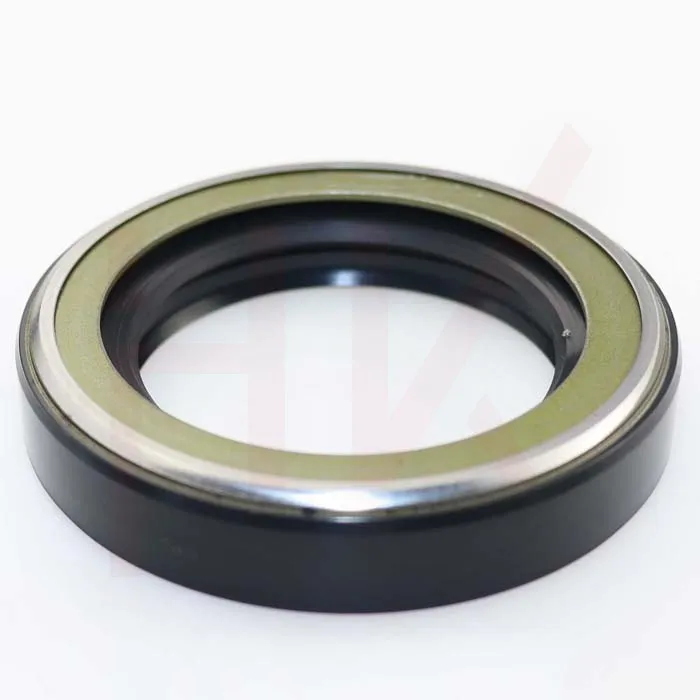டிசம்பர் . 06, 2024 11:11 Back to list
Oil Seals for Rotating Shafts Choosing the Right Type and Installation Tips
Understanding Oil Seals for Rotating Shafts
Oil seals, also known as rotary shaft seals, play a crucial role in various mechanical systems by preventing the leakage of lubricants and protecting against contamination. In applications where rotating shafts are involved, these seals ensure the effective sealing of oils and other fluids around the shaft, contributing significantly to the longevity and efficiency of the machinery.
Functionality of Oil Seals
The primary function of an oil seal is to retain lubrication while preventing the entry of dirt, dust, and moisture. This is especially important in rotating shafts found in engines, gearboxes, pumps, and other mechanical systems where smooth operation is critical. Oil seals are typically made of elastomeric materials like rubber, which exhibit good flexibility and resilience, allowing them to effectively endure varying pressures and temperatures.
When a shaft rotates, it generates a dynamic motion that can cause fluids to escape if not properly contained. An oil seal provides a lip that presses against the shaft, creating a barrier to fluid flow. This contact area is crucial as it determines the performance of the seal. The design of the seal, including the shape of the lip and the material used, can significantly impact its sealing capability and durability.
Types of Oil Seals
There are several types of oil seals designed for specific applications
. The most common types include1. Standard Oil Seals These are used in most everyday applications and are available in various sizes to fit different shaft diameters. 2. Single-Lip Seals This type features one sealing lip, making it suitable for applications where only one side of the seal needs to retain oil. 3. Double-Lip Seals As the name suggests, these seals have two sealing lips and are beneficial in environments with a higher risk of contamination, providing an additional layer of protection. 4. Spring-Loaded Seals These seals include a spring that maintains pressure against the shaft, enhancing their sealing performance and reducing the likelihood of leakage.
5. Specialty Seals Designed for extreme conditions, such as high temperatures or chemical exposure, these seals use specialized materials like fluorocarbon or silicone.
oil seal for rotating shaft

Material Considerations
The choice of material for oil seals is paramount to their performance and longevity. Common materials include
- Nitrile Rubber (NBR) Known for its excellent resistance to oil and wear, making it a popular choice for a range of applications. - Fluorocarbon (FKM) Offers superior resistance to high temperatures and aggressive chemicals, suitable for more demanding environments. - Silicone Provides good flexibility and temperature resistance, often used in applications requiring a higher range of performance.
Maintenance and Replacement
Regular inspection and maintenance of oil seals can prevent unexpected failures and leaks. Signs that an oil seal may need replacement include visible wear, oil leaks in the vicinity of the shaft, and changes in the performance of the machinery.
When replacing oil seals, it is essential to select the correct type and size to ensure proper sealing and compatibility with the specific application. Also, proper installation is critical, as misalignment or damage during installation can lead to premature seal failure.
Conclusion
Oil seals are a vital component in the operation of any machinery with rotating shafts. By understanding the functions, types, materials, and maintenance needs of oil seals, engineers and technicians can enhance the reliability and performance of their equipment. Properly selected and maintained oil seals can lead to extended equipment life, decreased downtime, and overall improved operational efficiency. As technology advances, the design and manufacturing of oil seals continue to evolve, ensuring that they will meet the ever-changing demands of modern industries.
-
The Trans-formative Journey of Wheel Hub Oil Seals
NewsJun.06,2025
-
Graphene-Enhanced Oil Seals: Revolutionizing High-Pressure Oil Sealing
NewsJun.06,2025
-
Future of Hydraulic Sealing: Advanced Intelligent TCN Oil Seals
NewsJun.06,2025
-
Don’t Let a Broken TCV Oil Seal Ruin Your Day
NewsJun.06,2025
-
Bio-Inspired Dust Seals for Better Sealing Performance
NewsJun.06,2025
-
Biodegradable and Sustainable Hydraulic Seal Materials
NewsJun.06,2025
-
Top Oil Seal Solutions for Your Industrial Needs
NewsMay.22,2025
Products categories
















